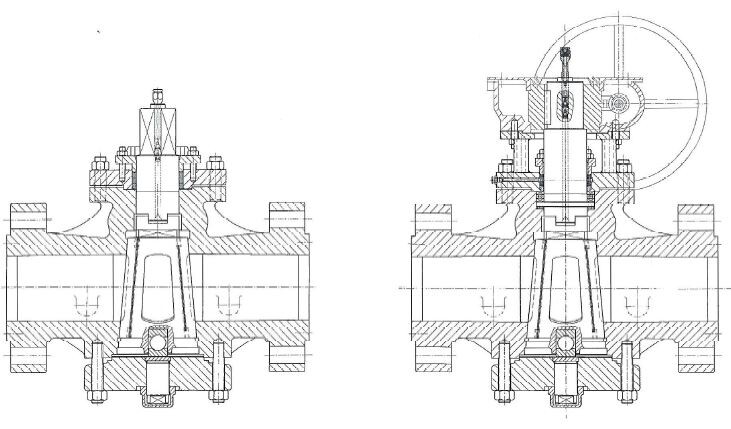Essential Principles for Plug Valves Selection
Plug valves, as a commonly used type of valve, play a crucial role in various industrial and engineering applications. Choosing the right plug valve is essential based on its structural features and design functions. Below are the principles for selecting plug valves, covering diverse operational conditions, fluid requirements, and material considerations.

1. Allocation and Flow Control
In situations requiring fluid distribution and alteration of flow direction, such as when operating at temperatures not exceeding 300°C, with a nominal pressure not exceeding 1.6 MPa, and a nominal diameter not exceeding 300 mm, it is recommended to choose multi-port plug valves. These valves effectively facilitate fluid allocation and flow control.
2. Requirements in Food and Pharmaceutical Industries
In facilities such as food processing plants and pharmaceutical factories, sanitary safety is paramount. Therefore, it is advisable to select plug valves made of austenitic stainless steel with a fixed conical shape. This material offers excellent corrosion resistance and sanitary properties, suitable for environments where contact with food and pharmaceuticals occurs.
3. Oil and Gas Extraction and Pipeline Transport
For oil field extraction, natural gas extraction, and pipeline transport, different types of plug valves should be selected based on varying pressure and temperature requirements. For general oil and gas extraction equipment and pipelines, oil-sealed conical plug valves are recommended. In environments with high pressure and temperature, plug valves capable of withstanding higher pressures and temperatures should be chosen.
4. Corrosion Resistance in Chemical Industry
In the chemical industry, where fluids may exhibit strong corrosive properties, plug valves should be selected considering the corrosion resistance of valve materials. For pipelines and equipment containing corrosive media, options include plug valves with polytetrafluoroethylene (PTFE) sleeve seals or Crl8Nil2M02Ti stainless steel-lined PTFE sleeve seal plug valves. These valves exhibit outstanding corrosion resistance and can operate reliably in harsh chemical environments.
5. Gas, Natural Gas, and HVAC Systems
For pipelines and equipment in gas, natural gas, and heating, ventilation, and air conditioning (HVAC) systems, plug valves with smaller diameters are typically required for flow control. Therefore, it is recommended to choose packing-type conical plug valves for these systems. These valves have simple structures, ensuring reliable operation for flow control needs.
By considering these principles, suitable plug valves can be selected to meet specific operational conditions and fluid requirements, ensuring system stability and safety. In the selection process, factors such as valve performance indicators, quality, and reliability should also be thoroughly considered to ensure long-term operational effectiveness of the system.

